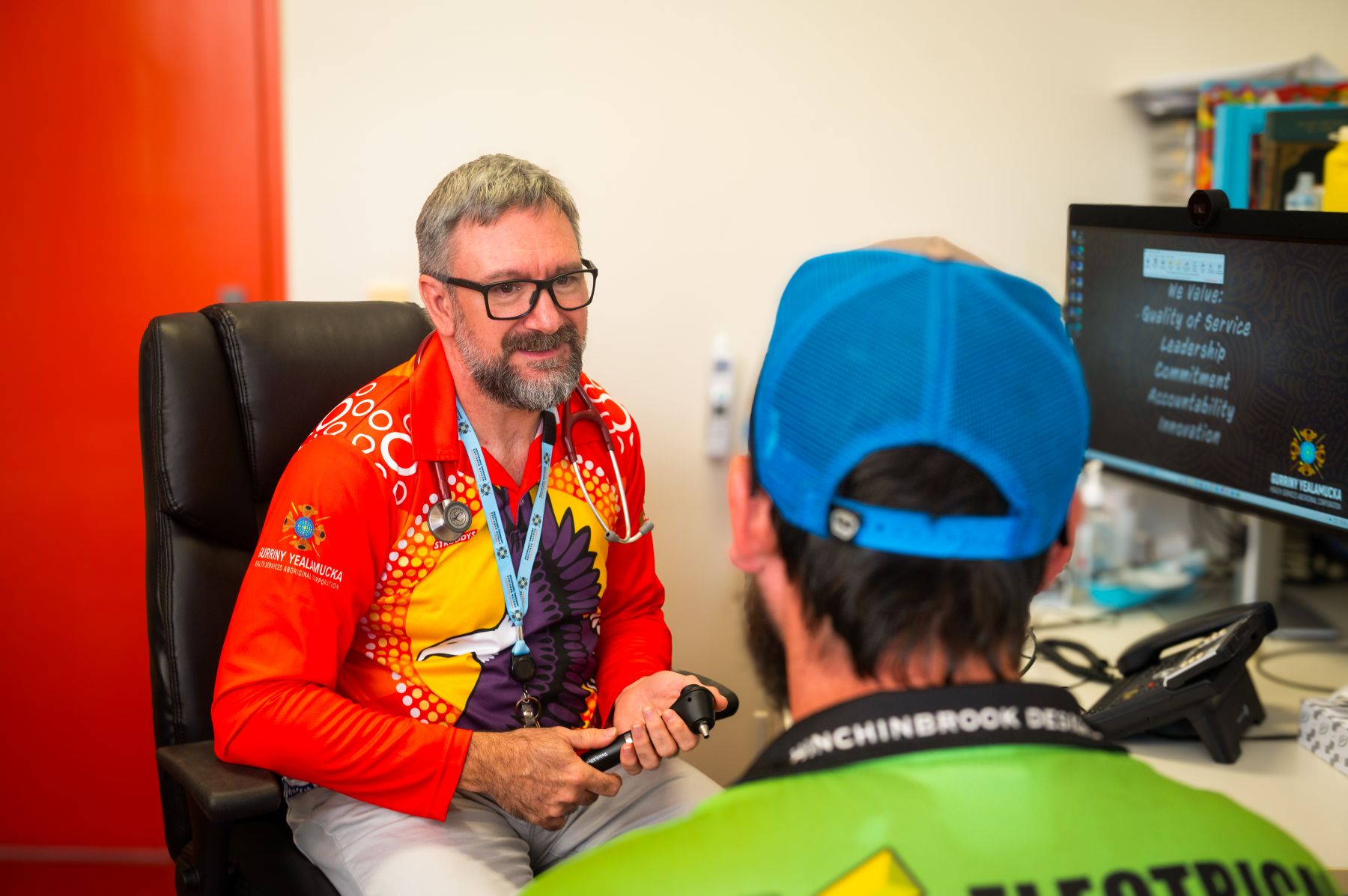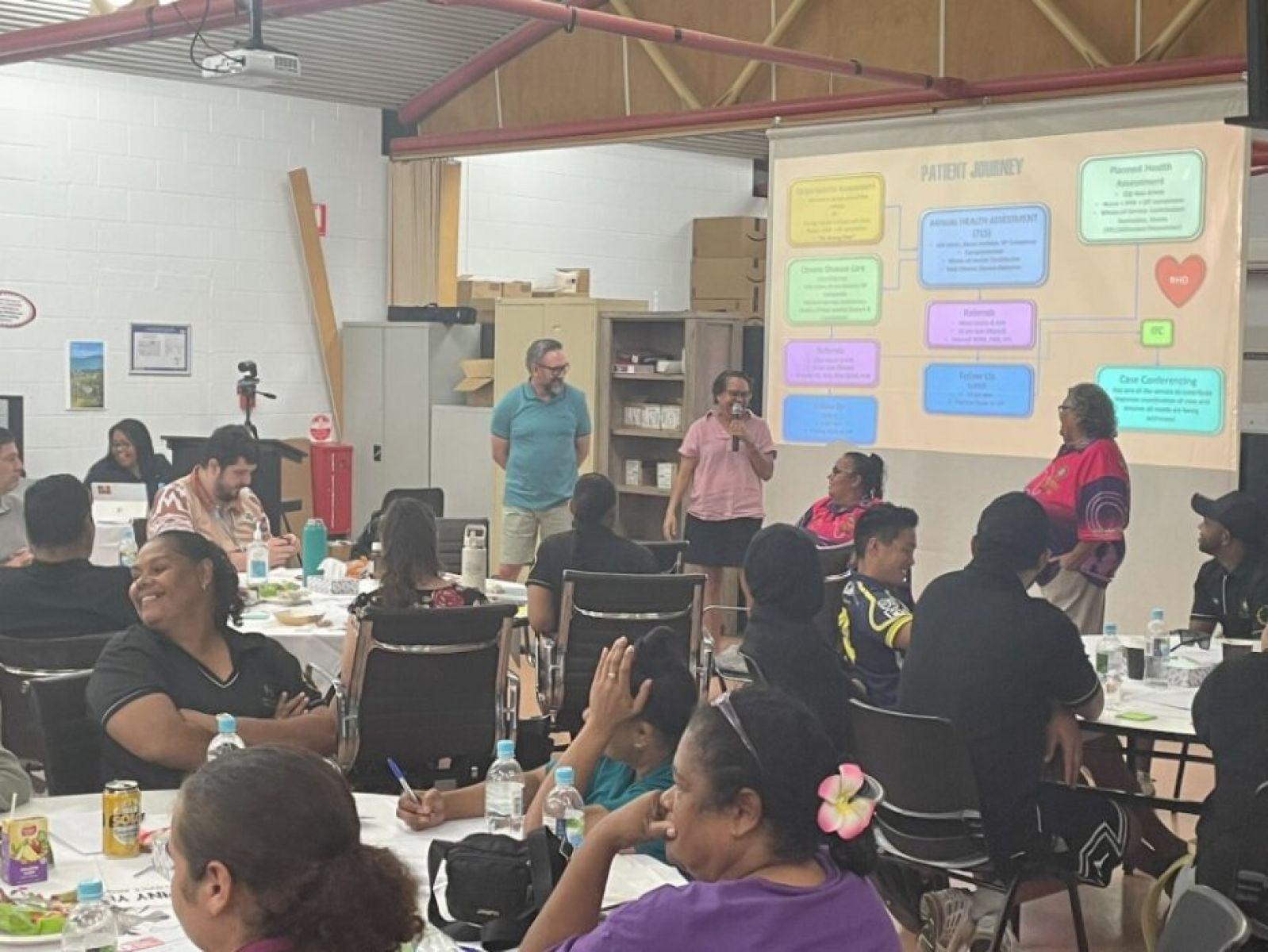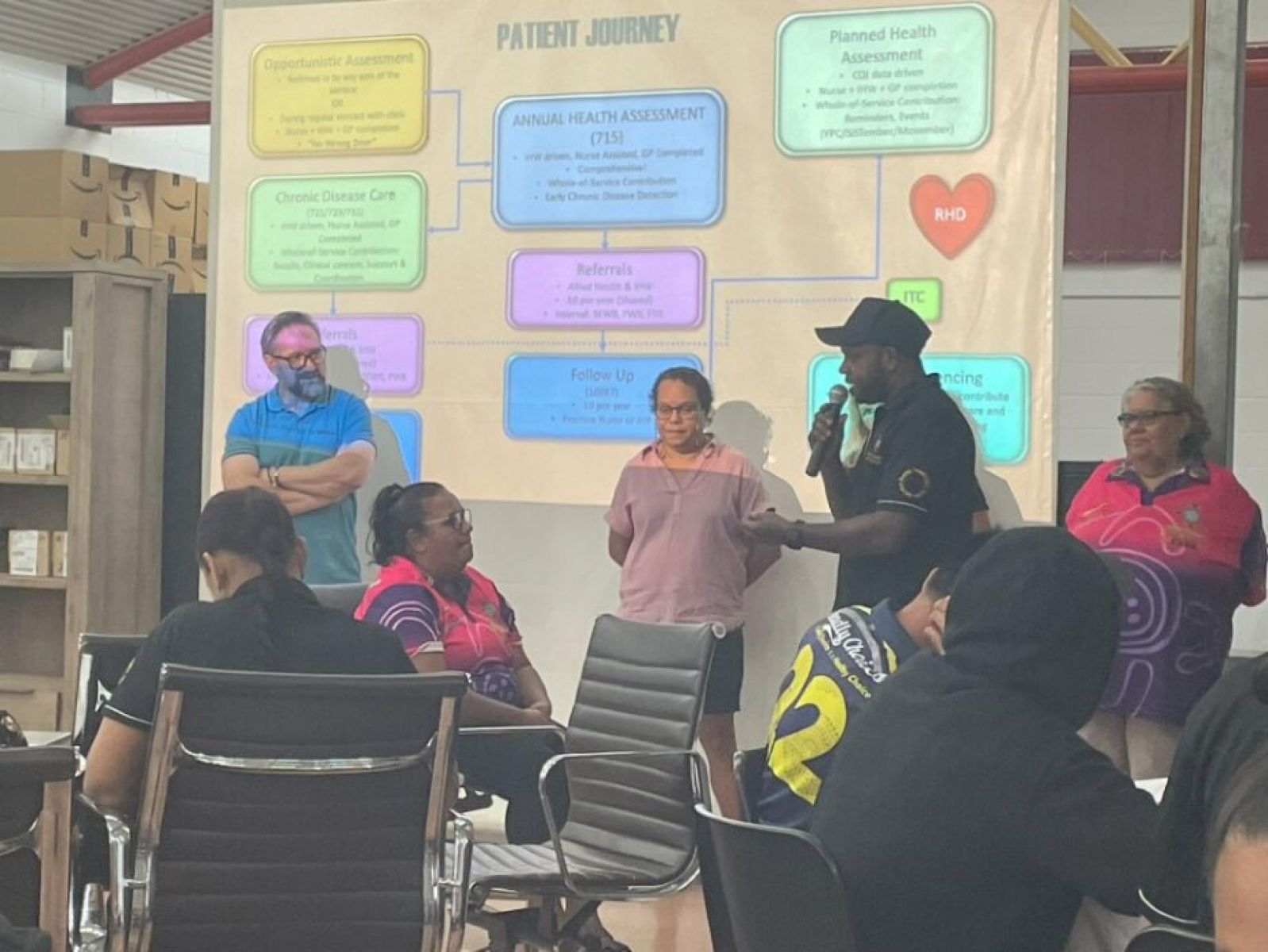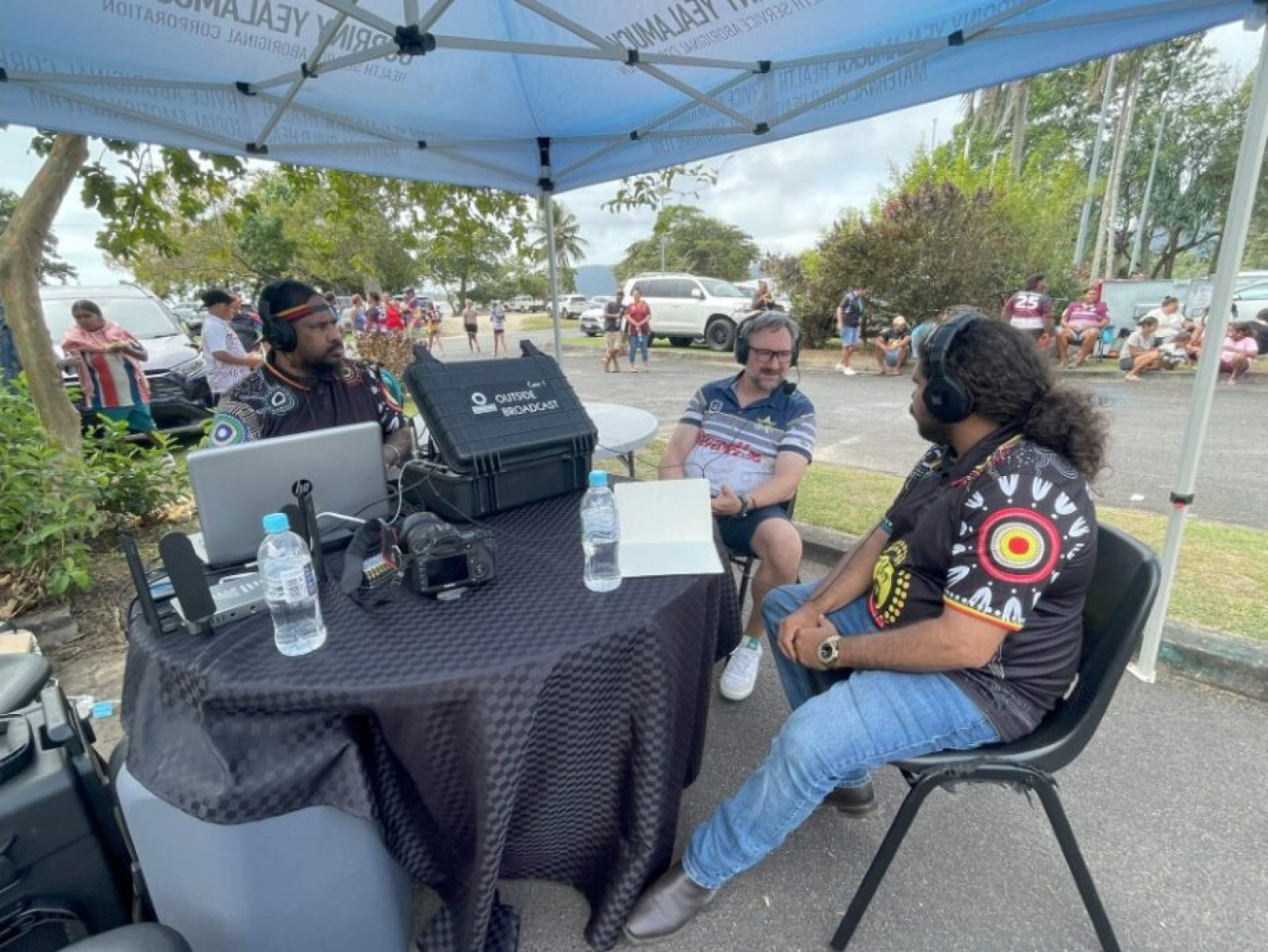22 October 2025
“Fell in love with the place and never looked back”

When Dr Jason King drove “over the range one lunchtime” from Cairns to Yarrabah in 2017, he wasn’t expecting a career turning point.
But the community, the clinic, and the mission landed all at once. He “fell in love with the place and has never looked back!”
Today, the Yued Noongar doctor is Director of Clinical Services and Senior Medical Officer at Gurriny Yealamucka Health Services Aboriginal Corporation, an Aboriginal Community Controlled Health Service (ACCHS) serving the Yarrabah Aboriginal Shire.
“I love working with the community and with all the staff at Gurriny; and especially love seeing the health service achieve our goals and meet challenges head on.”
That spirit has shaped his leadership since 2018 and continues to draw doctors who want medicine to mean more.
Why training locally matters
Gurriny Yealamucka sits within one of Australia’s most significant stories in primary care — community-controlled health. Governed by a local Board and powered by a predominantly local workforce, Gurriny Yealamucka now runs multiple services and programs focused on preventive and early-intervention care.
It is exactly the kind of setting where locally trained doctors thrive and where Dr King has watched the JCU pipeline take root.
“Over the last seven years since I came to Gurriny, JCU has consistently grown in their impact and eyes of the service both through their support for GP registrars previously and their expanding role locally in training medical students across the full degree,” he says.
“The training of doctors locally, most often sourced from local communities in the region provides a unique opportunity and I believe has meant candidates for our service have been conspicuously well suited to working within an ACCHO (Aboriginal Community Controlled Health Organisation) and, more broadly, Aboriginal communities.
“JCU graduates now form the majority of our medical workforce and community fully embrace these clinicians who have a both the knowledge base and experience of Aboriginal health at a formative level, expanded through subsequent opportunities as students and registrars.”
World-class primary care, grounded in culture
Ask Dr King why ACCHOs are special, and his answer is immediate.
“Working within an ACCHO is an experience that provides a powerful mix of clinical opportunities absolutely vital for doctors and medical students to see firsthand the complexities of life and health through a truly holistic and culturally informed lens,” he says.
“This is absolutely unique globally, further strengthening the notion that graduates, doctors in training and Fellows who train in an ACCHO environment are world leaders in providing primary care.
"Additionally, the lessons learned within an ACCHO are 100% transferrable to the mainstream, something that is not always the case in the reverse direction.”
The rewards aren’t only clinical; they’re relational and longitudinal.
“The closeness to community and your patients and the broadness of support you have at your fingertips through Aboriginal Health Workers, Allied Health Teams and hospital-based Specialists is again truly amazing and allows doctors within an ACCHS to spread their wings, so-to-speak, and dig into really rewarding medicine and see longitudinally the results of their efforts,” Dr King says.
“Very often ACCHS have very family friendly setups in terms of hours worked and leave entitlements for example, which allows staff to give their best whilst at work, knowing they can return home at the end of their day and spend time with their families to recharge their batteries. A supported environment gives confidence and a sense of clinical and cultural safety which goes a long way to keep doctors connected to their purpose without the distractions other contexts so readily offer up.”
Advice to students and junior doctors
For medical students and early-career doctors curious about ACCHOs, Dr King’s encouragement is practical and generous.
“Speak to your education team about opportunities to make a connection with an ACCHS,” he says.
“Most welcome students through placements and electives and are always willing to support your learning. Don't be afraid to follow your curiosity, to remain open minded and courageous in your goals and see the truly unique opportunity that exists on your doorstep.”
Building the pipeline with purpose
Sustained training pathways, and the support to use them, are the difference between good intentions and real careers in northern Queensland.
“The pipeline is absolutely essential for piquing curiosity and getting your foot in the door," Dr King says.
"For ACCHS we now know that being involved in that pipeline from an early point keeps that curiosity alive.
“Incentives are an essential ingredient that can overcome the tyranny of distance and anxiety of uncertainty around placement costs for those who may have families and commitments away from their placements and communities. Incentives provide a powerful signal to students, doctors and the community that this is a priority and something worth becoming a part of.”
Stay, train and lead in northern Australia
From Royal Perth Hospital to Wuchopperen in Cairns, and now at Gurriny Yealamucka in Yarrabah, Dr King’s journey shows what happens when training, community and purpose line up.
He came to visit; he stayed to serve. And for doctors who want hands-on medicine, strong mentorship, cultural learning, and family-friendly careers, his message is clear: the North is not a detour — it’s a destination.


NQRTH is an initiative of the Australian Government's Integrated Rural Training Pipeline (IRTP) and is facilitated by James Cook University in partnership with public and private hospitals, Queensland Aboriginal and Islander Health Council (QAIHC), health services, Aboriginal Community Controlled Health Organisations (ACCHOs) and GP clinics.
Cairns region
(07) 4226 7138
Central West region
(07) 4764 1547
Mackay region
(07) 4885 7122
North West region
(07) 4764 1547
Torres and Cape region
(07) 4095 6103
Townsville region
(07) 4781 3424





